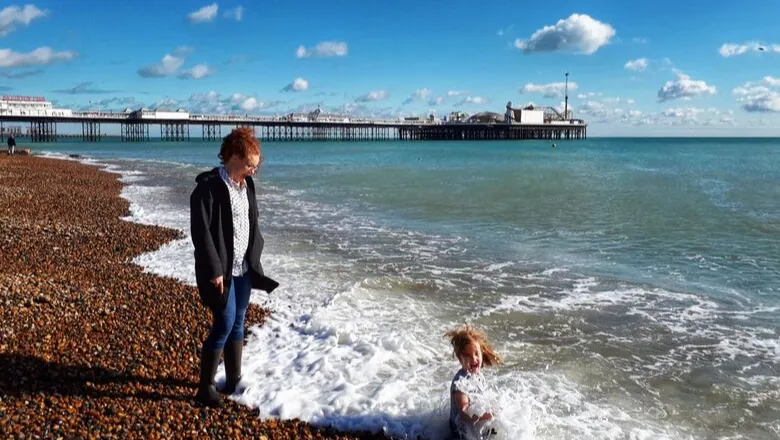24 September 2019
5 minutes with Julie Hartley
Julie Hartley has recently joined the Department of Women & Children’s Health as a Research Associate. She is currently working with the team on the DISCERN study and is a mother of two. We took 5 minutes with her to hear about her career, what she does outside research and what advice she would give to her 18-year-old self.

Briefly, tell me about your background and career up to this point at King’s?
I am an anthropologist by training, and since completing my PhD, I’ve had a variety of different postdocs in a variety of different fields. The first project I worked on examined patient’s and professional’s decisions to take part in new diagnostic and treatment technologies for autism, epilepsy and migraine. I then went on to work in the medical humanities and did archival research on the first women laboratory technicians at the NIMR – a field that very few women entered at the time. Most recently I have worked with a team of researchers at the Louis Dundas Centre at UCL in the field of paediatric palliative care. At UCL, I completed a systematic review of the physical health of parents who are caring for children with life-limiting and life-threatening illnesses. I’ve also worked in academic publishing for two different journals. Oh, and in between all of this, I had two kids!
What research are you currently working on?
I am working with a team of senior researchers on the DISCERN study which investigates the critical factors required to improve the disclosure and discussion of harm with women and families in maternity care.
What is a typical day like for you?
I like to wake up before my kids do so I can drink my coffee in peace. Typically, I get about 30 minutes to myself before they wake up and bring their joyful chaos into my life. I work best in the mornings and afternoons, and in the office environment, so I like to leave for work as early as possible.
Where is your research area heading in the next 5 years?
I hope to continue working on the disclosure and discussion of harm and the ways that these incidents impact not only the families involved, but also the front-line health workers who were part of their care.
What is your favourite part of your current role?
What I like best about my work is the fact that it matters – I like working on a topic that is impactful.
What do you do with your time outside of academia?
I spend a lot of time tidying up Legos and the destruction left behind from glitter! I also love to do Crossfit - especially Olympic lifts!
What advice would you give to your 18-year-old self?
First, I’d tell myself 18-year-old self to be bolder! Then I’d tell her it’s okay for ginger people to wear any colour they darn well please!
Who do you look up to (inside or outside of academia)?
I don’t think I have a specific person I look up to, but I admire everyday people who are kind and go out of their way to be nice to others.
Any leaving remarks that you would like other members of our school to know about you?
I’m quite friendly, so do come over and say hi.
QUICK-FIRE:
Favourite Movie: Annie Hall
Favourite Book: The Prophet, by Kahlil Gibran
Favourite TV Show: Charmed
Favourite Scientist: Ada Lovelace
